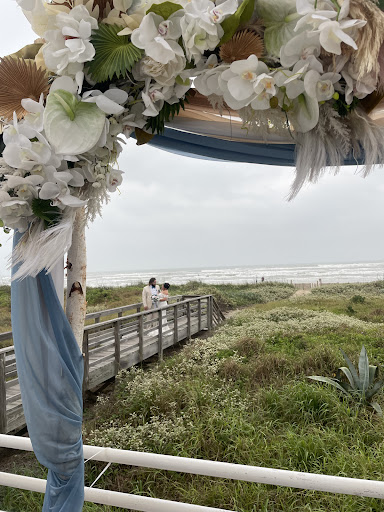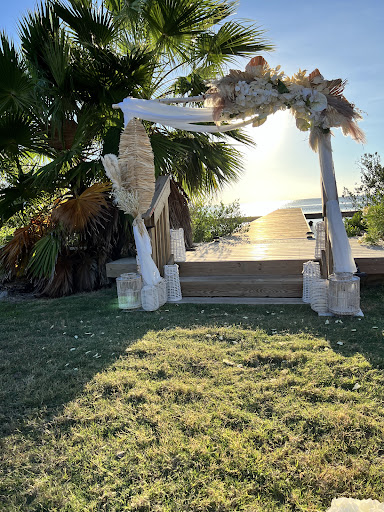Most couples are excited to plan their dream wedding, but overlooking hidden costs can quickly derail your budget. To ensure a smooth planning process, you need to account for venue fees, vendor gratuities, and unexpected expenses that can arise in the picturesque Hill Country. By setting a realistic budget and actively managing every expense, you can keep your spending in check while enjoying the beauty of your special day.
Understanding Your Budget
Once you grasp the basic premise of budgeting for your wedding, the next step involves a detailed understanding of your finances. Knowing what you have available can guide your decisions effectively, ensuring you prepare for both expected and unexpected expenses.
Assessing Your Financial Situation
Take stock of your financial landscape by reviewing your savings, income, and any contributions from family members. This initial assessment will give you a clear picture of what funds are truly at your disposal and highlight potential gaps needing attention.
Setting Your Overall Budget
Craft your overall wedding budget based on your financial assessment, incorporating all expenses such as venue, catering, décor, and attire. Consider allocating about 10-20% of your budget for unanticipated costs to avoid surprises that can jeopardize your plans.
To set a specific number, total your available funds and establish a realistic ceiling that encompasses all elements of your wedding. Start by prioritizing vital items and then gradually build in extras, ensuring each expense aligns with your overall vision. For instance, if your total budget is $25,000, a comfortable allocation might be $10,000 for the venue and catering, $5,000 for attire, and so forth. This structured approach minimizes stress while keeping your spending in check.
Key Factors to Consider
As you plan your Hill Country wedding, a few key factors can significantly impact your budget. Focus on vendor selection, seasonality, and location to get a comprehensive view of your expenses. Additional elements include transportation costs, decor, and permitting fees. Knowing these variables helps you create a more accurate financial plan and minimizes the risk of overspending.
Venue Costs and Location Fees
Choosing an ideal venue involves not only the rental fee but also potential location fees that can vary greatly. These fees may include charges for using certain sites or additional services offered by the venue. Researching options early on allows you to uncover bundled deals or any restrictions that might impact your overall budget.
Guest Count and Catering Expenses
Your guest count plays a pivotal role in your overall catering expenses, dictating the size of your food order and the level of service provided. Initial estimates of attendees often change, so tracking RSVPs and adjusting your menu accordingly can prevent excess spending.
For catering, it’s wise to analyze package deals that offer buffet or family-style options instead of plated meals, which can be more expensive. Additionally, exploring local vendors may provide cost-effective solutions or discounts for booking multiple services together. Always factor in gratuities, taxes, and any potential overtime for staff, as these can add significantly to your total catering costs. Knowing these aspects helps you to better manage your budget and avoid financial surprises.
Hidden Costs to Watch For
Identifying and preparing for hidden costs can make or break your wedding budget in the Hill Country. While you may account for major expenses like the venue and catering, numerous smaller fees often slip through the cracks. Unexpected costs could arise from permits, overtime labor fees, or additional service charges, each impacting your bottom line significantly. Awareness of these factors allows for better financial planning and can prevent you from exceeding your budget. Thou must keep a keen eye on every detail.
Vendor Gratuities and Tips
Many vendors expect gratuities that can add up quickly, often around 15-20% of their services. This includes the caterer, DJ, photographer, and other crucial professionals involved in your day. Failing to budget for these tips can result in a last-minute scramble to cover expenses. Establish clear expectations and inquire about common practices to avoid any surprises. Thou should always factor in these crucial costs.
Decor and Additional Rentals
When planning your wedding, decor can easily become a hidden expense if you’re not careful. Couples often underestimate costs associated with floral arrangements, lighting, tableware, and other crucial rentals. For instance, completing your vision may require additional items like chairs, linens, or specialized backdrops that come with added fees. Explore package deals or DIY options to keep costs manageable. Thou must conduct thorough research to ensure your decor budget aligns with expectations.
Budgeting Tips for Success
Success in budgeting for your Hill Country wedding hinges on strategic planning and attention to detail. Create a comprehensive list of all potential expenses and regularly update it. Be realistic about costs by consulting local vendor pricing and exploring alternatives. Use tools like budgeting software or spreadsheets to track spending efficiently. Finally, set aside a contingency fund to cover unexpected costs. Knowing this proactive approach can alleviate stress and keep your budget on track.
Prioritizing Your Wedding Essentials
Identifying what matters most to you will guide your spending effectively. Start by listing all elements of your wedding, from venue to attire. Assign a ranking to each item based on necessity and emotional significance. Focus your budget on prioritized importants, ensuring you allocate enough resources to the aspects of your wedding that will enhance your overall experience and satisfaction.
Creating a Detailed Spending Plan
Drafting a detailed spending plan involves breaking down each budget category into specific line items. Allocate funds for venue, catering, attire, and décor, incorporating both fixed and variable costs. Research average expenses in the Hill Country area to inform your estimates, and consult with vendors for payment schedules. This structured approach will give you clear visibility into your budget, helping you avoid overspending and enabling you to adjust as necessary. Tracking every dollar while remaining flexible will streamline the planning process and enhance your overall experience.
Adjusting Your Budget
Flexibility is key when managing your wedding budget. As planning progresses, you’ll likely find that certain elements require additional funds, while others may come in under budget. Regularly reviewing your spending and adjusting categories based on real costs helps keep your finances in check and ensures that unexpected expenses don’t derail your plans.
Identifying Areas to Cut Costs
Start by examining your priority items and determine where you can make adjustments. Venue selection, catering, and floral arrangements are significant expenses that can often be scaled back. Consider opting for a less formal meal service or utilizing in-season flowers, which can drastically reduce costs without sacrificing style.
Strategies for Staying on Track
Establish a tracking system for all expenses, whether through a dedicated spreadsheet or a budgeting app. Review this regularly and compare actual spending against your initial budget. Setting aside a specific percentage for contingency allows you to manage surprises efficiently without veering off course.
Utilizing a tracking system like a budget app makes it easier to stay organized. For example, apps often allow you to categorize expenses, set alerts for budget limits, and provide visualization tools like pie charts to see where most of your funds are allocated. Regularly updating this in conjunction with monthly check-ins helps you maintain clarity and focus, ensuring that costly missteps are identified and addressed before they become problematic. Additionally, involving your partner in financial discussions promotes accountability and makes the budgeting process a joint effort, which can lead to better outcomes.
Final Preparations
As your wedding day approaches, focusing on the final details becomes important. Ensure all aspects are lined up by confirming arrangements with vendors, finalizing the schedule, and double-checking that you have everything you need for a seamless celebration. This stage is about tightening any loose ends and preparing for the big moment, avoiding any last-minute surprises that could derail your plans or budget.
Confirming Vendor Contracts
All vendor contracts should be reviewed and confirmed in advance. Communicate directly with each vendor to ensure they are aware of your expectations and specific details of the event. This includes discussing arrival times, setup procedures, and any special requests. Having everything laid out clearly mitigates the risk of miscommunication and extra costs.
Finalizing Your Budget Breakdown
Once all vendors are confirmed, revisit your budget breakdown to make necessary adjustments. This step ensures all expenses align with your critical priorities, such as venues, catering, and attire. Allocate funds strategically, accounting for any unforeseen charges that might arrive as final confirmations are submitted.
Breaking down your final budget involves scrutinizing each category to keep your spending in check. Assign precise amounts to each vendor based on confirmed contracts and past quotes, ensuring that major expenses, like the venue and catering, are prioritized. Aiming for around 10% of your budget as a contingency fund for surprises helps maintain flexibility. Consolidating this information into a straightforward spreadsheet aids in visualizing how each cost fits into your overall financial picture, allowing for informed decisions and potential reallocations where necessary.
To wrap up
Presently, budgeting for a Hill Country wedding requires careful planning to avoid hidden costs. Start by listing all potential expenses, including venue fees, catering, and decor, ensuring you account for service charges and tips. Research local vendors thoroughly to obtain accurate quotes and read contracts closely for any additional fees. Set aside a contingency fund to handle unexpected expenses, allowing you to enjoy your wedding day without financial stress. By taking these steps, you can create a budget that accommodates your vision while keeping costs in check.
FAQ
Q: What are some common hidden costs associated with a Hill Country wedding?
A: Common hidden costs include venue fees for additional hours, catering gratuities, set-up and break-down fees, transportation costs for guests, and unexpected costs for permits or licenses specific to the Hill Country area.
Q: How can I avoid overspending on my wedding budget?
A: To avoid overspending, create a detailed budget that includes all potential expenses, prioritize needs vs. wants, track all expenses in real-time, and allocate a portion of your budget for unforeseen costs that may arise.
Q: What should I consider when choosing a wedding venue in Hill Country to manage costs?
A: When choosing a venue, consider its capacity, rental duration, included amenities (like tables and chairs), and the availability of preferred vendors. Also, check for any seasonal pricing variations to select the most cost-effective time for your wedding.









































